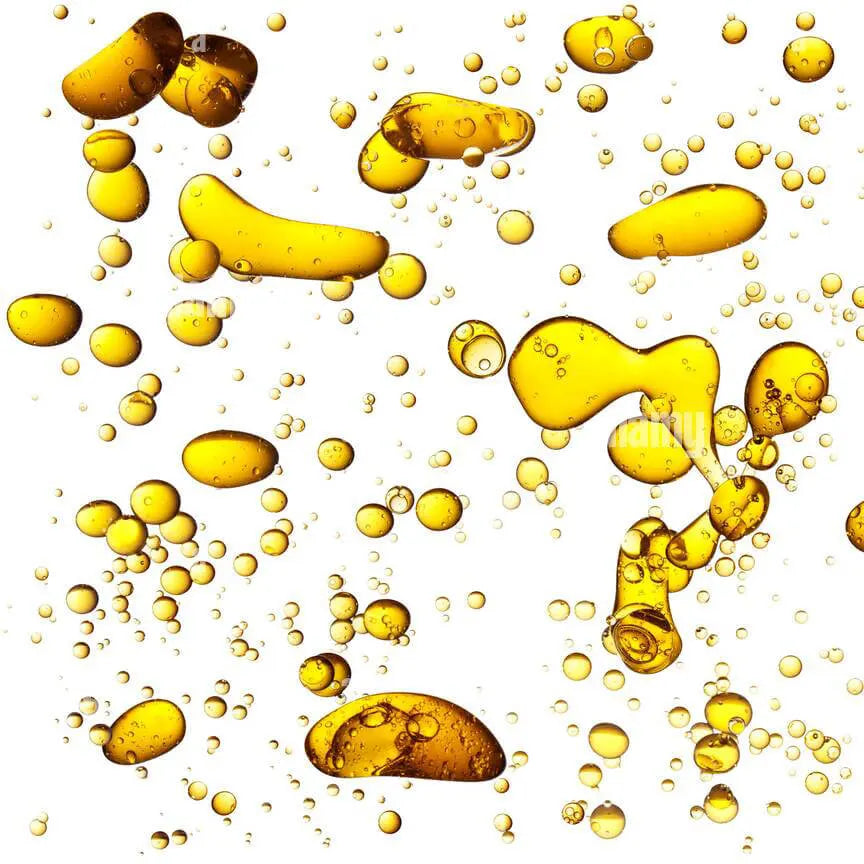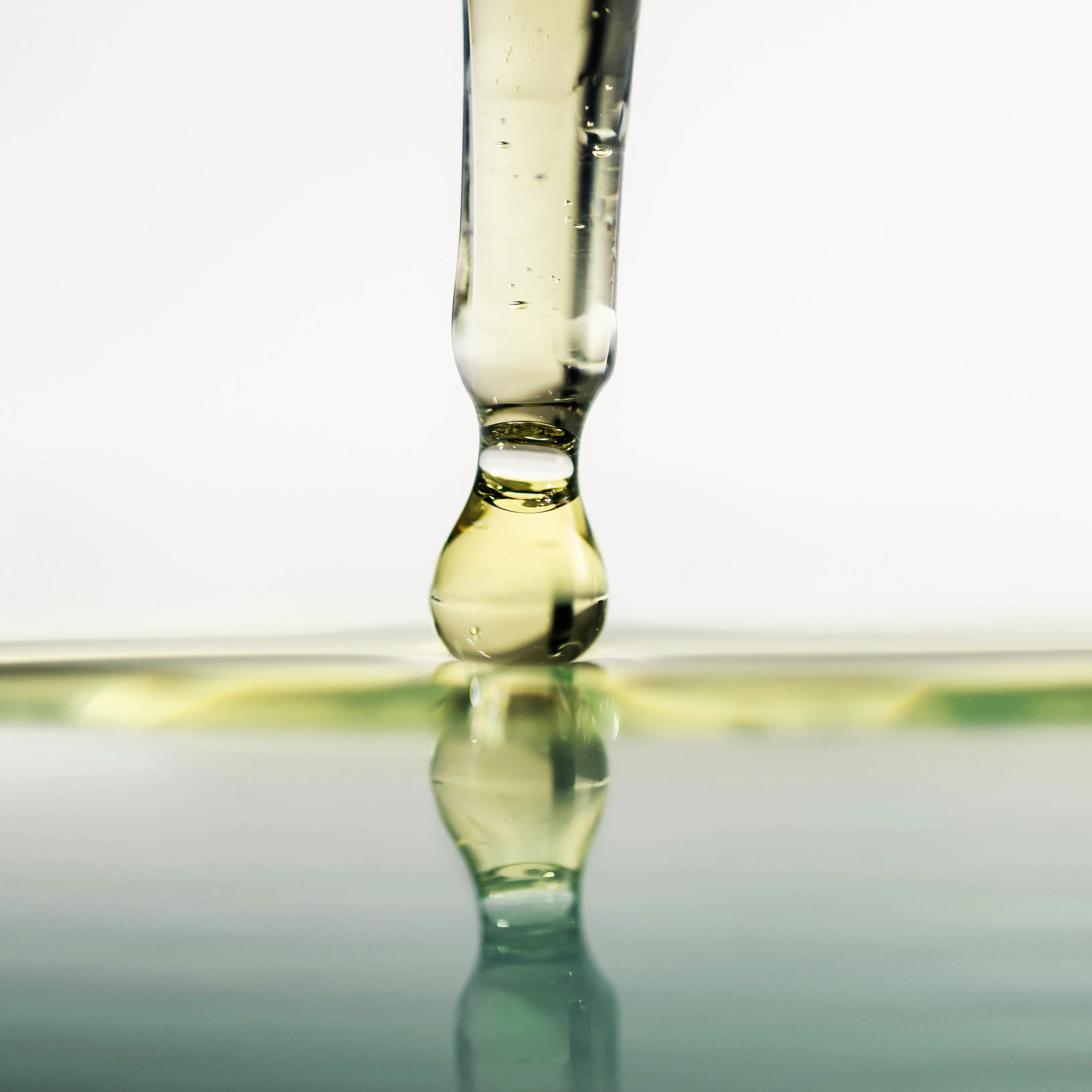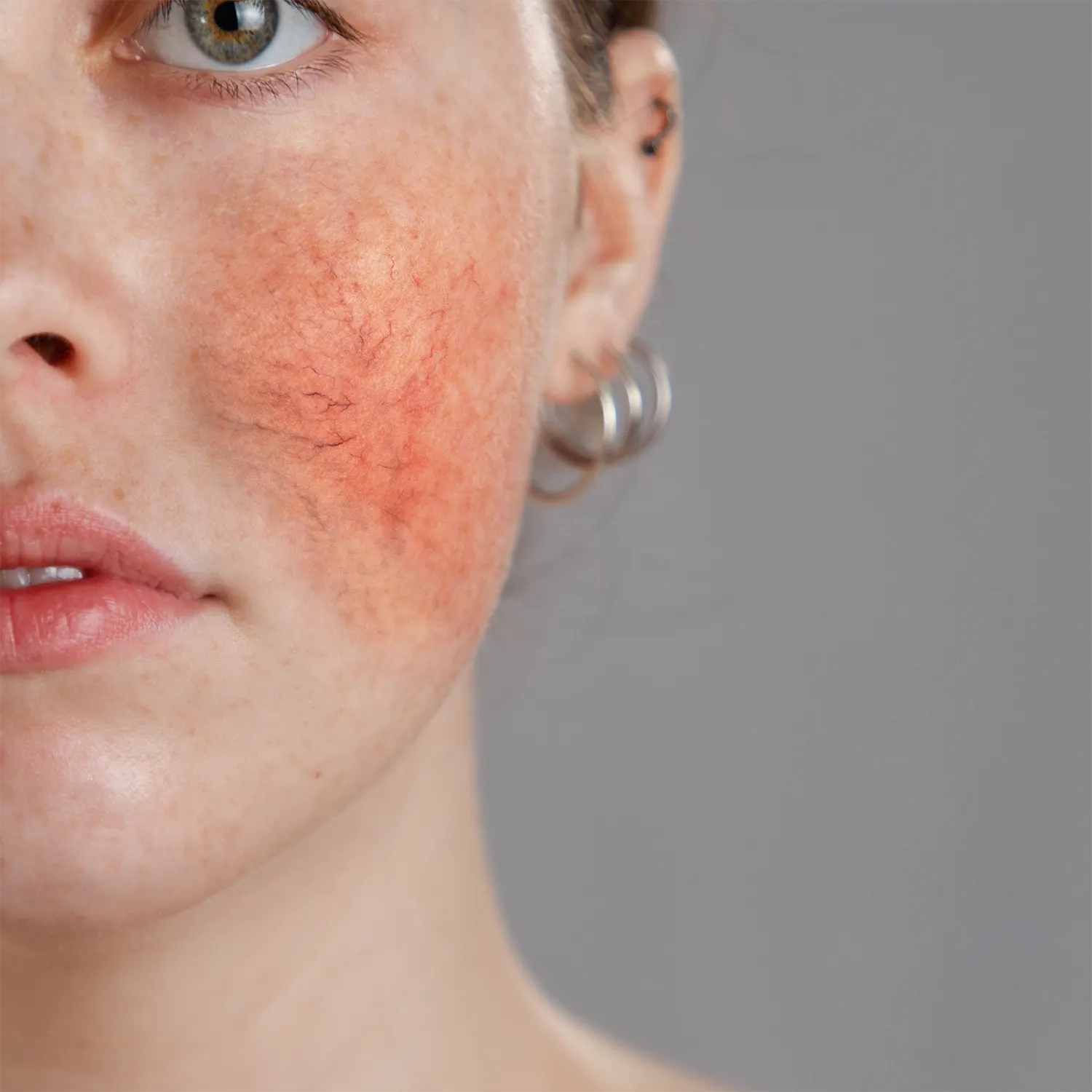
Emulsifiers in skin care
Conventional as well as natural cosmetic creams, lotions and ointments for skin care contain emulsifiers that are not skin-related substances. Their job is to combine the water and oil components of an emulsion homogeneously. However: common emulsifiers are harmful to your skin's health. In this article, learn how to recognize emulsifiers in the ingredients of your skin care, what the differences are, how to find healthy alternatives for your skin and how to make informed decisions to prevent long-term skin damage.
What are emulsifiers?
Emulsifiers are substances that make it possible to combine two normally immiscible liquids such as oil and water and create a stable mixture (emulsion) from them. Emulsifiers are particularly often used in processed foods, for example in baked goods, ready meals, ice cream, mayonnaise, margarine, sausages, salad dressings or sweets. Emulsifiers often used in the food sector are mono- and diglycerides of fatty acids (E471), which are made from vegetable or animal fats. Emulsifiers are intended to improve the texture, stability and mouthfeel of processed foods and extend their shelf life.
Emulsifiers are also widely used in cosmetics to combine and stabilize the aqueous and oily phases of cosmetic formulations. In conventional cosmetics, these are usually synthetic, petroleum-based emulsifiers that are chemically modified. In natural cosmetics, on the other hand, natural emulsifiers are preferably used, which are often based on highly heated, refined palm oil.
How do you recognize emulsifiers in your skin care?
The ingredients of cosmetic products are listed on the packaging in the form of the INCI list (International Nomenclature of Cosmetic Ingredients). Here you will find the exact names of the emulsifiers used. Typical emulsifiers can be recognized by their names.
These are the INCI names of the most commonly used emulsifiers in conventional cosmetics: Polysorbate 20, 60 or 80, Ceteareth-20, PEG-40 Hydrogenated Castor Oil, Steareth-2 and Steareth-21, Cetearyl Alcohol & Ceteareth-33, PEG-100 Stearate.
Emulsifiers based on esterified fatty acids in combination with sugar, alcohol or glycerin are particularly popular in natural cosmetics. Typical INCI names are: Sucrose Stearate, Sucrose Laurate, Xylitylglucoside, Polyglyceryl-3 Polyricinoleate, Polyglyceryl-6 Distearate, Polyglyceryl-10 Oleate, Cetearyl Olivate, Sorbitan Olivate, Sorbitan Stearate, Sorbitan Olivate.
Fatty alcohols are also often used as emulsifiers with a stabilizing effect in both conventional and natural cosmetic skin and hair care products. Typical INCI names for fatty alcohols are: Cetyl alcohol, cetearyl alcohol, stearyl alcohol, lauryl alcohol, arachidyl alcohol, isocetyl alcohol, myristyl alcohol, behenyl alcohol, oleyl alcohol, decyl alcohol.
Why are common emulsifiers harmful to your skin health?
Studies show that common emulsifiers can dry out the skin, irritate it and even trigger allergies. Common emulsifiers also have the unpleasant side effect of accumulating in the stratum corneum of the skin. There they bind the skin's own fats (lipids) to the protective skin barrier and dissolve them. The next time they come into contact with water, emulsification takes place again and the dissolved lipids are washed out of the skin (wash-out effect). The protective skin barrier becomes increasingly porous and weakened.
The consequences for the skin barrier: It can no longer maintain its ability to bind moisture. As the lipids are washed out, it dries out more and more. The skin loses its elasticity, which leads to rough, itchy or flaky skin and premature skin aging. In addition, the skin surface becomes permeable to pollutants and microorganisms that penetrate the skin, promote blemishes and weaken the skin's own immune system.
The healthy alternative: our emulsifier-free membrane structure creams
Our innovative emulsifier-free skin creams are skin-identical in their structure. These membrane structure creams with their lamellar lipid structures were specially developed for sensitive and problematic skin. They offer a healthy and sustainable alternative to conventional skin creams.
Skin-related phospholipids instead of emulsifiers
Instead of conventional emulsifiers, we use skin-related plant phospholipids obtained from sunflowers (INCI: Hydrogenated Phosphatidylcholine) in our biomimetic DMS creams (DMS = Derma Structure Membrane).
Why is phosphatidylcholine related to skin?
Phosphatidylcholine (PC) acts as a precursor to the formation of ceramides. In simple terms, ceramides are the skin's own fats of the skin barrier. PC is also an essential component of every human cell membrane, including skin cells. As a substance naturally produced by the skin with an indirect emulsifying effect, phosphatidylcholine improves the structure and function of the skin barrier with a synergistic effect.
Properties and Functions of Phosphatidylcholine in the Skin
Phosphatidylcholine has both a hydrophilic (water-loving) and a lipophilic (fat-loving) part. This makes it able to combine fat and water. It acts as the skin's own "emulsifier". Its benefits for skin health are:
-
Improved skin barrier function
Phosphatidylcholine is an essential component of every human cell membrane and has a lamellar structure that resembles the skin barrier. Phosphatidylcholine plays an important role in the body's own ceramide production . The lipid structures of phosphatidylcholine contribute to the formation of the lipid bilayer in cell membranes. They have the ability to strengthen the skin barrier, to repair and rebuild a damaged skin barrier. They protect the skin from harmful external influences such as bacteria, dirt and chemicals.
-
Antioxidant and anti-inflammatory properties
Phosphatidylcholine supports skin regeneration, improves the fluidity of cell membranes, has anti-inflammatory and antioxidant effects. It protects skin cells from oxidative damage. PC promotes wound healing and helps keep the skin smooth and supple.
-
moisture retention and elastic skin
Phosphatidylcholine prevents excessive water loss from the skin (trans epidermal water loss = TEWL) and ensures that the skin remains elastic, supple and hydrated.
-
Liposomes and deep transport of active ingredients
Furthermore, phosphatidylcholine can be converted into liposomes. These are tiny spherical particles that are used in cosmetics and medicine as active ingredient carriers. Liposomes can penetrate deeply into the skin and transport other active ingredients such as vitamins or antioxidants (improved penetration).
Stabilization and additional moisture through pectin
Our creams contain moisturizing pectin from fruit fibers, which stabilizes and holds the oil-soluble and water-soluble parts of the creams together on the skin like a natural grid. This physical bond forms a thin, breathable protective film that improves the skin's moisture retention without stressing the skin.
Regeneration of the skin barrier and immune protection through beta-glucan
The natural active ingredient beta-glucan from oats contained in all myrto creams penetrates deep into the skin and unfolds its protective and healing properties:
- Beta-glucan strengthens the skin barrier and rebuilds a damaged skin barrier.
- Beta-glucan stimulates the production of tissue-tightening collagen.
- Studies show that beta-glucan stores up to 400% more moisture than hyaluronic acid with a comparable molecular weight and that moisture is also retained in the skin for longer.
- Beta-glucan has an anti-inflammatory effect . Harmful irritants, allergens and microorganisms are effectively repelled, thereby preventing impurities, blackheads and pimples.
- The skin's own immune protection is improved, making the skin less susceptible to external influences such as UV radiation, digital blue light or fine dust.
Conclusion
To avoid skin-weakening emulsifiers in your skin care, our membrane structure creams are a healthy alternative with a variety of benefits. emulsifier-free myrto face creams are ideal for improving skin structure, preventing skin problems and slowing down skin aging.
literature
-
Elias, PM, & Feingold, KR (2019). "Skin Barrier". This review article goes into detail about the role of the skin barrier and how emulsifiers can damage it.
-
Loden, M. (2003). "Effect of moisturizers on epidermal barrier function". Here the effect of different emulsifiers on the skin barrier is analyzed.
-
Protte, K., et al. (2019). "Skin irritation and skin sensitization potential of emulsifiers used in cosmetics". In this study, various emulsifiers were tested for their skin irritating and sensitizing properties.





